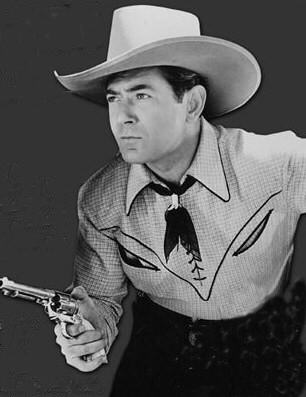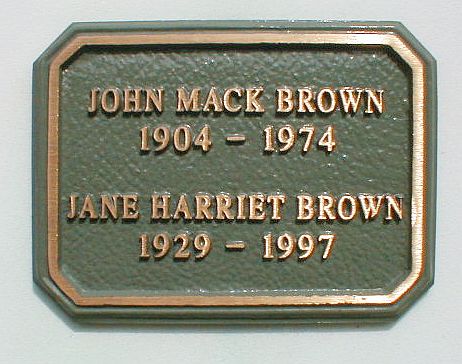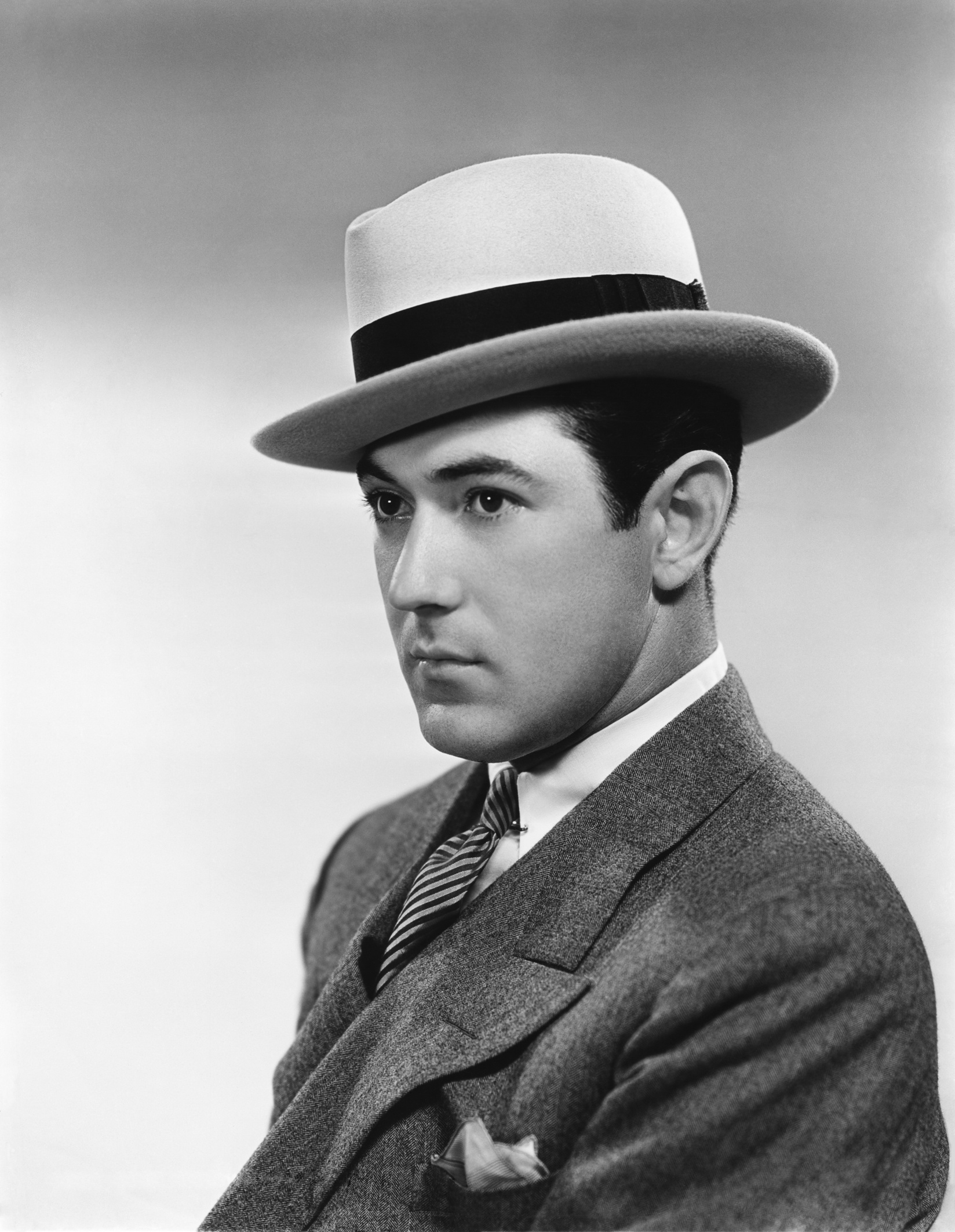Johnny Mack Brown (John Mack Brown)

Born and raised in Dothan, Alabama, Johnny Mack Brown was a star of the high school football team, earning a football scholarship to the University of Alabama. His little brother Tolbert “Red” Brown played with “Mack” in 1925. His good looks and powerful physique saw him portrayed on Wheaties cereal boxes and in 1927, brought an offer for motion picture screen tests that resulted in a long and successful career in Hollywood. He played silent film star Mary Pickford’s love interest in her first talkie, Coquette (1929), for which Pickford won an Oscar. He appeared in minor roles until 1930 when he was cast as the star in a Western entitled Billy the Kid and directed by King Vidor. An early widescreen film (along with Raoul Walsh’s The Big Trail with John Wayne, produced the same year), the movie also features Wallace Beery as Pat Garrett. Brown was billed over Beery, who would become MGM’s highest paid actor within the next three years. Also in 1930, Brown played Joan Crawford’s love interest in Montana Moon. Brown went on to make several more top-flight movies under the name John Mack Brown, including The Secret Six (1931) with Wallace Beery, Jean Harlow, and Clark Gable, as well as the legendary Lost Generation celebration of alcohol, The Last Flight (1931), and was being groomed by MGM as a leading man until being abruptly replaced on Laughing Sinners in 1931, with all his scenes reshot, substituting rising star Clark Gable in his place. MGM and director Woody Van Dyke screen tested him for the lead role of Tarzan the Ape Man but Van Dyke didn’t feel he was tall enough
Rechristened “Johnny Mack Brown” in the wake of this extremely serious career downturn, he made low-budget westerns for independent producers. Eventually he became one of the screen’s top B-movie cowboys, and became a popular star at Universal Pictures in 1937. A fan of Mexican music, he showcased the talents of guitarist Francisco Mayorga and The Guadalajara Trio in films like Boss of Bullion City and The Masked Rider. Brown also starred in four serials for Universal (Rustlers of Red Dog, Wild West Days, Flaming Frontiers and The Oregon Trail) and was a hero to millions of young children at movie theaters and on their television screens. Brown moved to Monogram Pictures in 1943 to replace that studio’s cowboy star Buck Jones, who had died months before. Brown’s Monogram series was immediately successful and he starred in more than 60 westerns over the next 10 years, often playing “Nevada Jack McKenzie” opposite Buck Jones’s old sidekick Raymond Hatton. Brown was also featured in two higher-budgeted dramas, Forever Yours and Flame of the West, both released by Monogram in 1945 and both billing the actor under his former “dramatic” name, John Mack Brown. When Monogram abandoned its brand name in 1952 (in favor of its deluxe division, Allied Artists), Johnny Mack Brown retired from the screen. He returned more than 10 years later to appear in secondary roles in a few Western films. Altogether, Brown appeared in more than 160 movies between 1927 and 1966, as well as a smattering of television shows, in a career spanning almost 40 years. Brown died in Woodland Hills, California of heart failure at the age of 70. His cremated remains are interred in an outdoor Columbarium, in Glendale’s Forest Lawn Memorial Park Cemetery.
Born
- September, 01, 1904
- USA
- Dothan, Alabama
Died
- November, 14, 1974
- USA
- Woodland Hills, California
Cause of Death
- heart failure
Cemetery
- Forest Lawn Memorial Park (Glendale)
- Glendale, California
- USA



